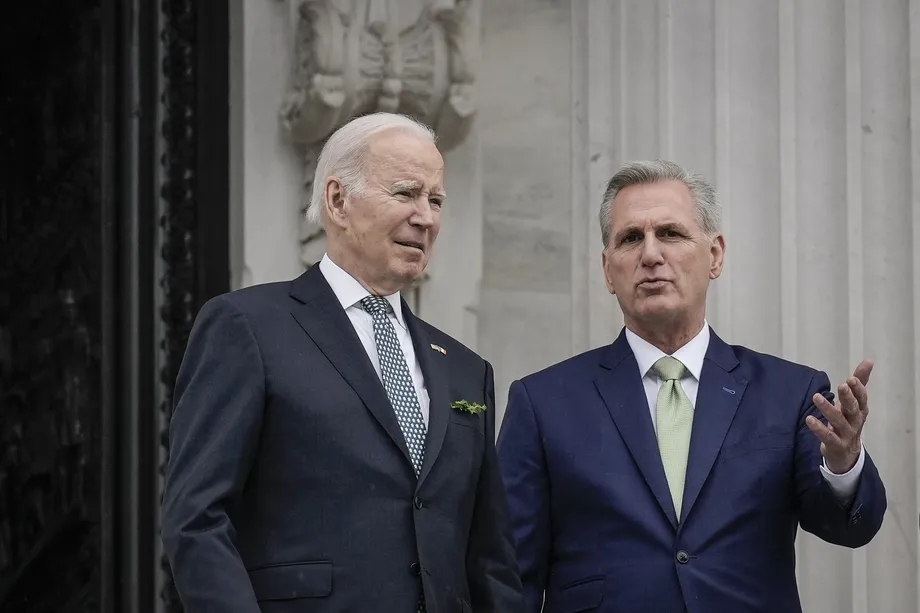
The debt ceiling battle of 2023 was full of sound and fury, and signified ... well, not nothing, exactly, but not very much.
Despite heated rhetoric over hostage-taking and talk of default, President Joe Biden and House Speaker Kevin McCarthy arrived at a relatively normal budget deal reached with the help of an imminent deadline.
The deal passed the House in an overwhelming bipartisan vote Wednesday night, and the Senate by a vote of 63 to 36 Thursday night.
Neither party got everything it wanted. Domestic spending will effectively be held at something close to the status quo in nominal terms, which means a cut when accounting for inflation. It’s still at a much higher level than Republicans wanted, and lower than Democrats would have preferred (though they do not see the cuts as devastating).
On a set of other policy issues where Republicans made big demands, Democrats granted only some limited concessions — for instance, on work requirements for some food stamp recipients, and on agreeing to restart student loan repayments in August, the latter of which the Biden administration had already said they’d do.










